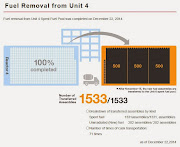(Or was it 'intended'?)
Consumers on the losing end, and this is just one of so many thanks to the financial "regulation" bill that's now ready to be signed by the vacationing golfer in chief.
Cap on debit card fees, aka the Durbin rule, has been lauded as protecting the consumer by lowering the transaction cost. It does no such thing, as it has nothing to do with the consumer. The beneficiary is the retailers who accept debit card payment, who now don't need to pay as much to the banks.
The banks, particularly the big banks who issue huge chunk of debit/credit cards - J.P.Morgan Chase, Citigroup, Bank of America, Wells Fargo - are bracing for the reduced revenue and profit resulting from this particular rule alone. As Bank of America made it very clear this morning,
"Bank of America’s debit-card revenue could shrink by $1.8 billion to $2.3 billion starting in the third quarter of next year because of restrictions on fees merchants can charge for each swipe of a debit card, Chief Executive Brian Moynihan said in a presentation today. The bank is seeking ways to replace some of the revenue lost to the Durbin rule, named after Sen. Richard Durbin, the Illinois Democrat who sponsored the amendment, Moynihan said.
"The bank also expects a goodwill charge of $7 billion to $10 billion in the third quarter tied to the value of the business after President Barack Obama signs the regulatory reform law approved by Congress this week, Chief Financial Officer Charles Noski said on a conference call. Goodwill is the difference between the price paid for an asset and its fair market value.
"Banks had lobbied against the Durbin amendment, while retailers touted the changes as being pro-consumer. “It’s regulating a transaction between two businesses,” Noski said. “This isn’t going to benefit consumers at all.” [Emphasis is mine.]
Put the price control on, and see the goods and services disappear. It has been the case ever since ancient Egypt and imperial Rome. In this case, these economics-ignorant politicians put the price control on the service (use of debit cards), and voila! free checking accounts disappear.
Don't believe me? Check this article out:
Banks Seek to Keep Profits as New Oversight Rules Loom (7/15/2010 New York Times)
"...Free checking, a banking mainstay of the last decade, could soon go the way of free toasters for new account holders. Banks are already moving to make up the revenue they will lose on lower overdraft and debit card transaction charges by raising fees on other services.
"Banks like Wells Fargo, Regions Financial of Alabama and Fifth Third of Ohio, for instance, recently began charging new customers a monthly maintenance fee of $2 to $15 a month — as much as $180 a year — on the most basic accounts. Even TCF Financial of Minnesota, whose marketing mantra championed “totally free checking," started imposing fees this year in anticipation of the new rules."
As Jamie Dimon, CEO of J.P.Morgan Chase, says in the article,
"If you’re a restaurant and you can’t charge for the soda, you’re going to charge more for the burger."
Wait till the Congress hear about this. They will force the banks to offer free checking accounts. What will disappear, then? Maybe they will lower the interest on CDs. Maybe they will put new restriction on who can qualify for free checking accounts (low-income families and union workers, my guess) and you will have to show the proof of income or union membership card to get free checking accounts.
The NY Times article also says so-called "regulations" to be imposed on the banks will be easily circumvented by the banks.
Who's the designated loser? We (small people) are. As always.
Anything is possible in this changey hopey world of Obamanation for groups with political clout with the administration (unions, big banks, big pharmas, big oils, big anything).
戦争の経済学
-
ArmstrongEconomics.com, 2/9/2014より:
戦争の経済学
マーティン・アームストロング
多くの人々が同じ質問を発している- なぜ今、戦争の話がでるのか?
答えはまったく簡単だ。何千年もの昔までさかのぼる包括的なデータベースを構築する利点の一つは、それを基にいくつもの調査研究を行...
10 years ago



 Tokyo Time
Tokyo Time
![[Most Recent Quotes from www.kitco.com]](http://www.kitconet.com/charts/metals/gold/t24_au_en_usoz_2.gif)



0 comments:
Post a Comment